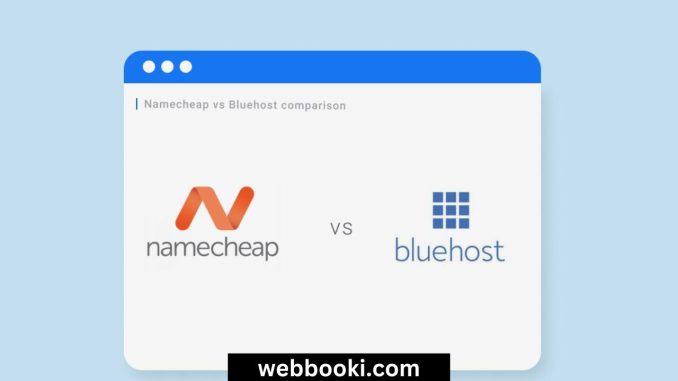
It narrows down to two big contenders for the needs of most people in such a case: Namecheap vs Bluehost. Both have their big plus points and minuscules, depending on how one takes the hosting world. Each of these platforms offers various hosting services; however, they vary in aspects regarding the feature, price, performance, and customer support. Below is a comparison with grounds that may help you determine which one best suits your requirements.
Namecheap Hosting vs. Bluehost:
Overview
Namecheap is originally a registrar of domain names that expanded to offer a range of hosting services, such as shared, VPS, and dedicated hosting. It is considered one of the most affordable options, offering a user-friendly interface, hence appropriate for beginners and small businesses.
Bluehost, on the other hand, is one of the few hosting providers recommended officially by WordPress.org. It offers several hosting plans, which are shared hosting, VPS, dedicated hosting, and lastly, managed WordPress hosting. Bluehost is known for robust performance and excellent customer service.
Price
Typically, Namecheap offers more affordable prices across its hosting products because the company actually reaches out to those on a tight budget. Shared hosting plans start at very competitive rates, and it often has discounts for the first year. Namecheap doesn’t have any hidden fees in its pricing structure.
Bluehost is price-competitive, but starting costs tend to be a little higher than what Namecheap offers. However, the set of features included in even the basic Bluehost plans is ample enough to justify the increased cost. Like Namecheap, Bluehost has promotional pricing for the first term, with higher renewal rates.
Performance
Generally, Namecheap does fairly well with its shared hosting plans considering performance. Users from users have had mixed feelings as far as the issues of speed and uptime go. Although it has solid up-time guarantees, some users have experienced slower loading times compared to Bluehost.
Bluehost has a good track record for its reliability, having had very good uptimes and faster loading speeds. It has optimized servers for WordPress, hence becoming one of the favorites of its users for speed and reliability.
Features
Namecheap offers a range of features, including:
- Free domain registration for the first year with hosting plans.
- Free SSL certificates.
- Web hosting with a friendly control panel (cPanel).
- Easy integration with different content management systems.
- Unlimited bandwidth in most of their plans.
Bluehost provides a wealth of features, including:
Free domain name for the first year.
- Free SSL certificate.
- 1-click WordPress installation.
- Full customer support.
Free Content Delivery Network (CDN) that works for better speed.
Consumer Support
Namecheap provides 24/7 customer support via live chat and by opening tickets. Their support is generally great, although some users report longer-than-usual wait times for responses.
Bluehost is renowned for its great customer service, which is available to its customers on a 24×7 basis through the phone, live chat, and email. Their informed support can help one through most issues, which may be of great help in more intensive users.
User Experience
Both offer rather user-friendly interfaces, though there are some differences. Namecheap features an unfussy control panel that is easy to navigate, especially for the beginning user. Its interface, though, is far from refined when compared to Bluehost’s.
Bluehost has a more visually appealing dashboard and does include comprehensive resources or tutorials that can help explain how to best utilize their services.
Conclusion
That all depends on your needs, in which Namecheap is a great option to make cuts and save some money by offering you less headache with its no-frills, user-friendly interface. However, if you want performance, customer support, and a smooth experience with WordPress, Bluehost could be worth an extra buck or two in investment.
Consider what your goals might be in the long term, the kind of website you are building, and your experience level. Your decision will depend entirely on your specific needs. Both hosting providers show great service, and in any case, per your unique requirements, you cannot go wrong either way.
Leave a Reply